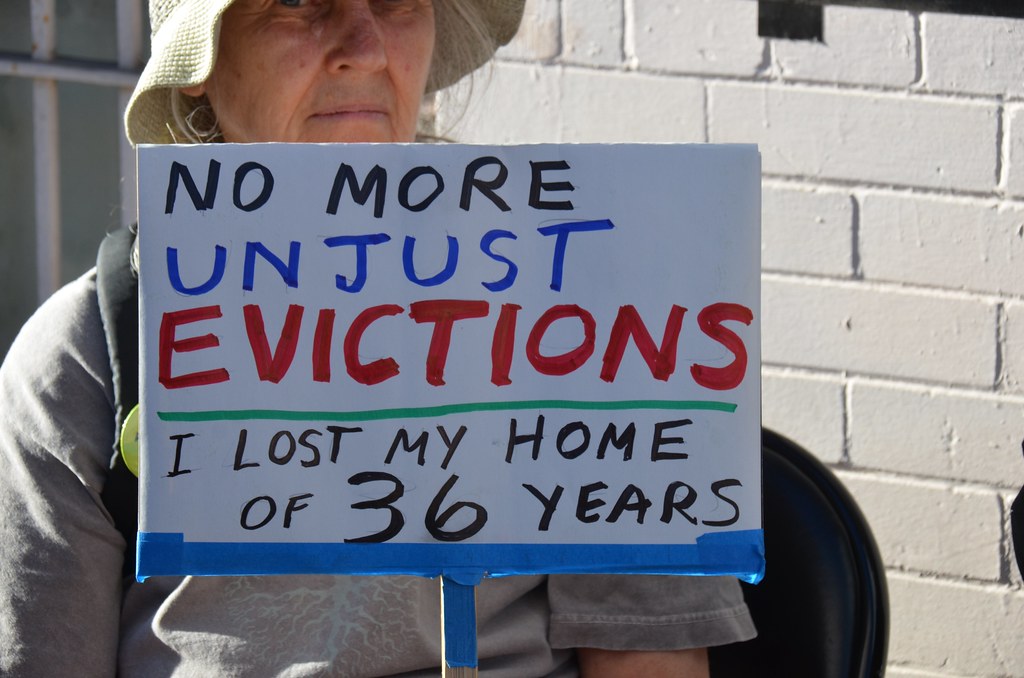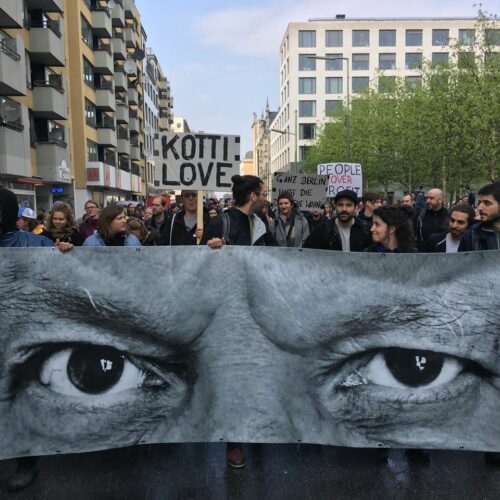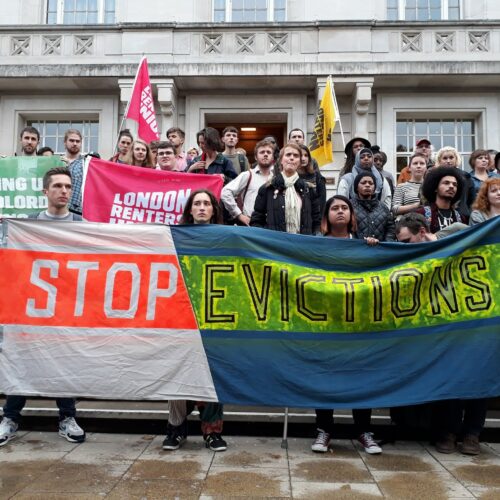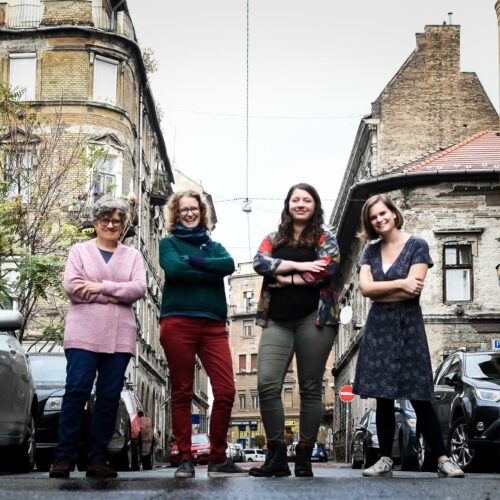The mission of Re-set is to provide support to the Czech ecological and housing movement in terms of analysis, educational activities, and development of organisational skills. Re-set connects different topics into a wider political narrative and provides a coherent vision of the social and economic transformation of the Czech society towards greater social and climate justice. The vision of Re-set is to be a stable organisation providing a workable framework for the long-term activist projects as well as being a space for sharing activists’ experiences.
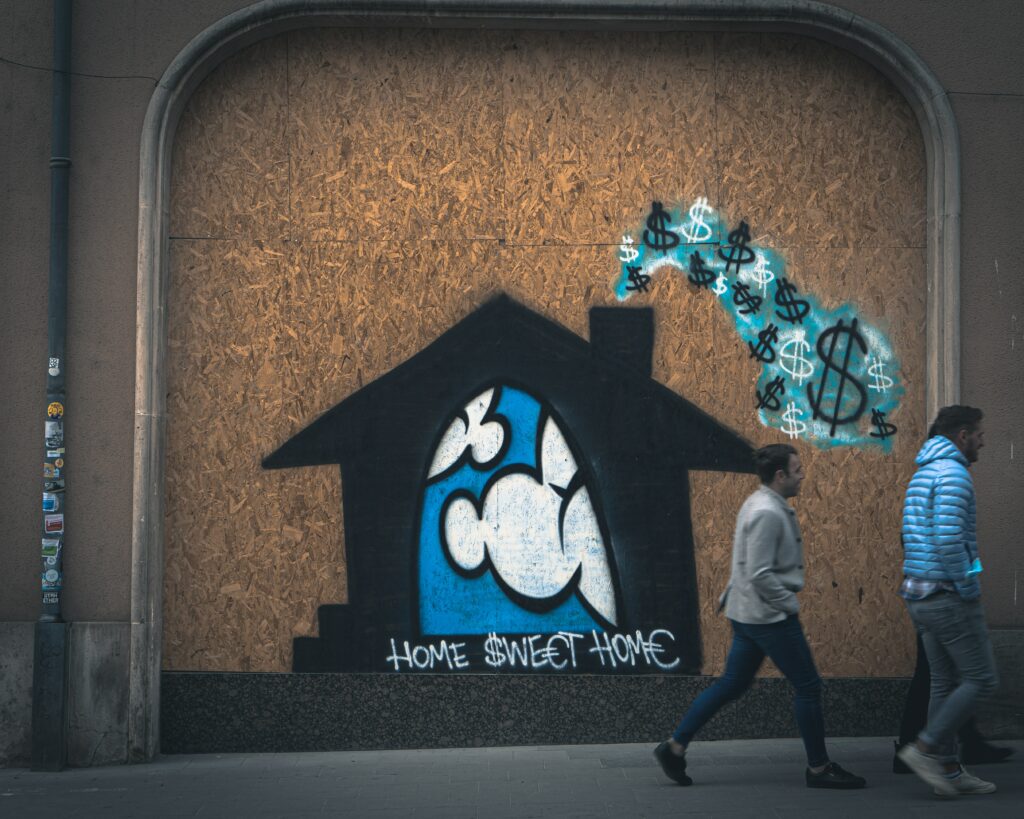
Two concepts are important for this work: climate justice and the right to the city.
How does re-set understand climate justice?
Re-set subscribes to the concept of climate (or, more broadly, ecological) justice, as it has gained traction over recent decades, drawing on inspirations from the “environmentalism of the poor” in the global south (the “Bali Principles of Climate Justice”). This means that their work starts from the premise that both the causes and impacts of the ecological crisis are unequally distributed in society, and historically rooted in various structures of exploitation and oppression. This also means that this crucial recognition should inform not only the way the climate problem is framed and understood but also the kinds of solutions that are proposed and the political strategies developed to enforce them.
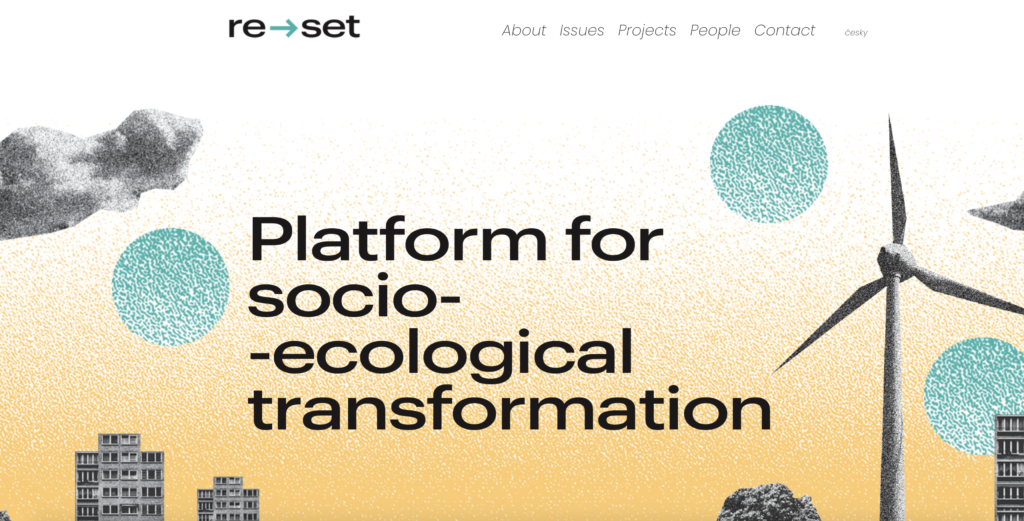
In practice, f. e. 1) proposing solutions that (in the spirit of ‘the green new deal’) weave together the need to lower energy and resource consumption with demands for greater substantive equality, 2) applying ecological criteria also to seemingly ‘non-environmental’ work done, 3) emphasising the need for a just transition, which does not leave fossil fuel workers and regions behind, 4) a clear commitment to internationalism and solidarity with the global south, as well as struggles for the rights of refugees and migrants.
How does re-set understand the right to the city?
Neoliberalisation of cities leads to exclusion of the citizens from the decision-making process and from access to previously accessible resources (e.g. water or housing). Right to the city is a right of every citizen to obstruct this trajectory that leads cities to serve the needs of markets instead of human beings. It is a citizens’ right to make a difference that matters (in contrast to shallow participation) and to freely create urban forms and functions.
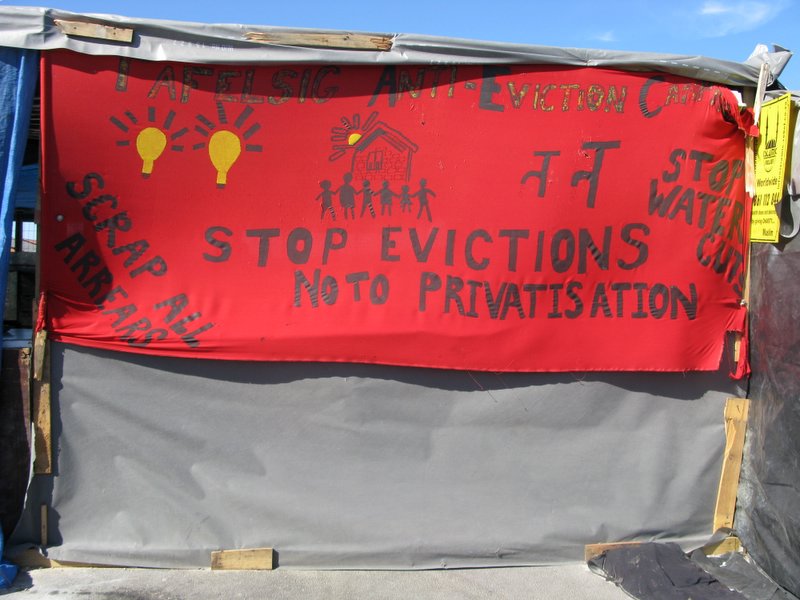
The right to housing is a crucial component of the right to the city because it concerns an essential human need of having a home. While the right to housing is guaranteed by the Czech and international legal documents, it is barely seen in practice. On the contrary, the recent political and economic developments in the Czech Republic demonstrate the tendency to ever stronger financialisation of housing. It is obvious that if a solution is awaited from politicians, they will surrender Czech cities to investors and bankers. Re-set believe that only a strong urban movement based on a powerful organisation can lead the struggle for affordable housing and for the vision of a city that serves the needs of the local dwellers.
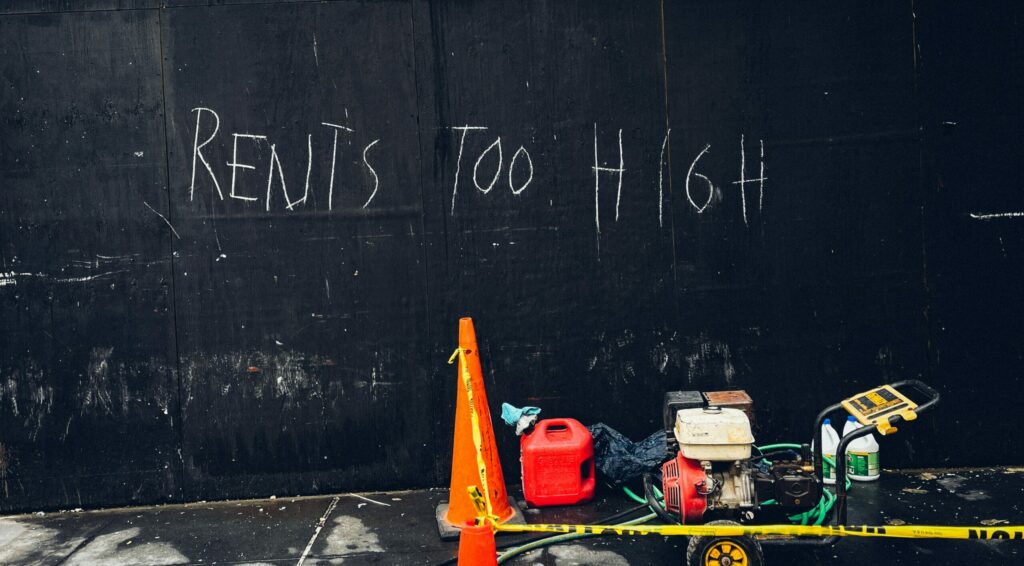
The goal of the project is to build a viable and lasting tenant organisation capable of negotiating better housing conditions in Písice real estate development, Prague.
The Guerrilla Grant
The project we are funding will take place in the Písnice settlement in Prague. This settlement was built during the communist era and was supposed to be privatised by the sitting tenants in the Velvet Revolution. However, instead of that it was finally sold into private hands in 2017. The settlement already has some experience with organising – the local tenants were fighting to get the possibility to privatise their flats, but they lost (initiative ‘My Písnice’). Their experience with organising and their contacts will come in handy during the course of this campaign. Nowadays sitting tenants are suffering from the same problems as other tenants in Prague – high rents, short-term contracts, but also poor public space maintenance (owned by the CIB group).
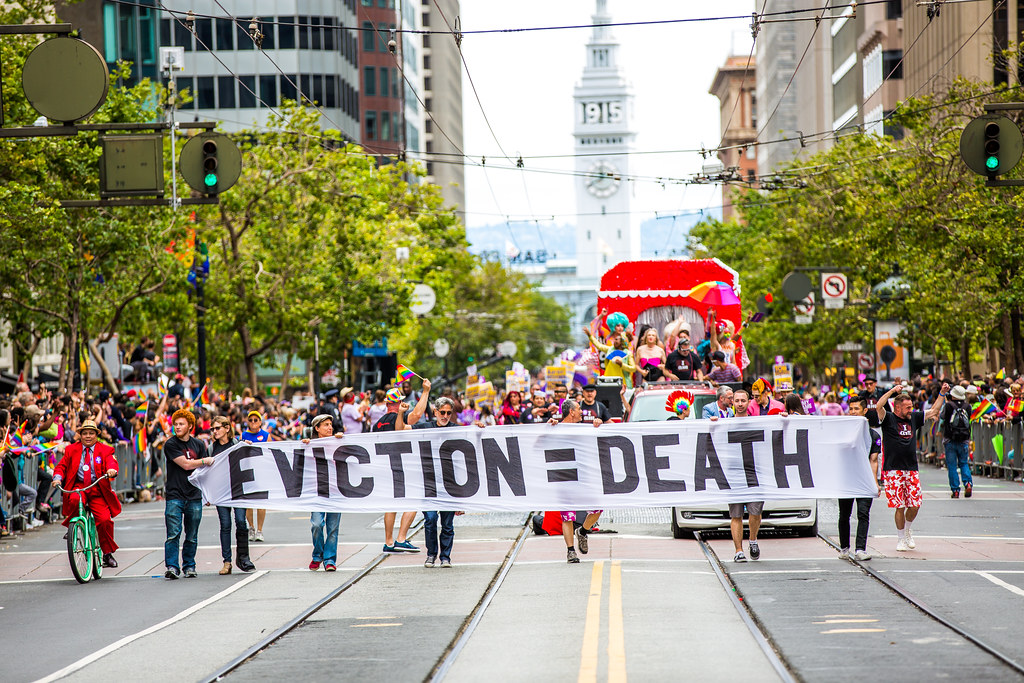
Goals:
– Organise a core group of tenants working on a specific issue in Písnice real estate development.
– Achievement of this goal will be assessed by the regularity of the core group’s meetings and its ability to influence the housing conditions in Písnice real estate development.
– Based on experience, create a brochure or workshop tools that will be used in similar cases of tenants’ organising in the Czech Republic.
Methods and timeline:
(The timeline is approximate, the team will use the tools pragmatically and interchangeably according to circumstances.)
– Interviews with the former tenants and one-to-ones with the selected contacts among the sitting tenants.
(January – March 2021)
– First phase of door-to-door. Meeting active/interested members of the community. Collection and systematising information about the housing conditions and landlord. Stating the issue. (April – June 2021)
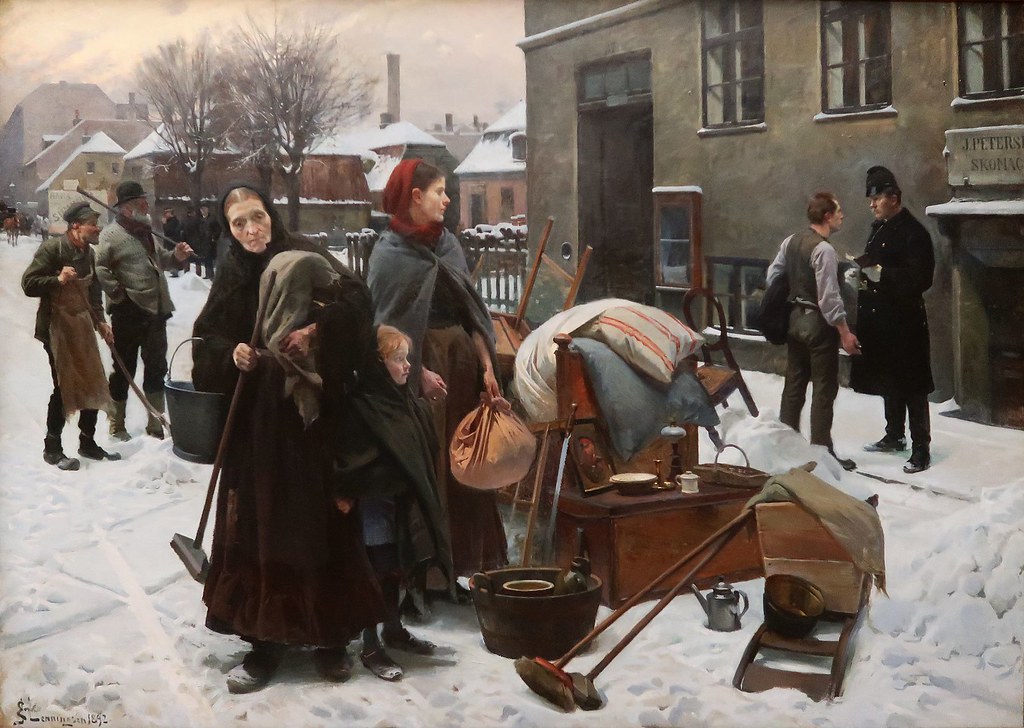
– First meeting of active and interested members of the community (July 2021)
– Following regular meetings of the core organisation, solving the issue (June 2021 – end of the project)
– Additional events for community: commented walks, urban festival Zažít město jinak (September 2021)
In the course of the project re-set activists and community members will evaluate the possibilities to organise a campaign on a specific issue. However, depending on the issue and circumstances, together they might consider another way of reaching the set goals. (November 2021 – March 2022)
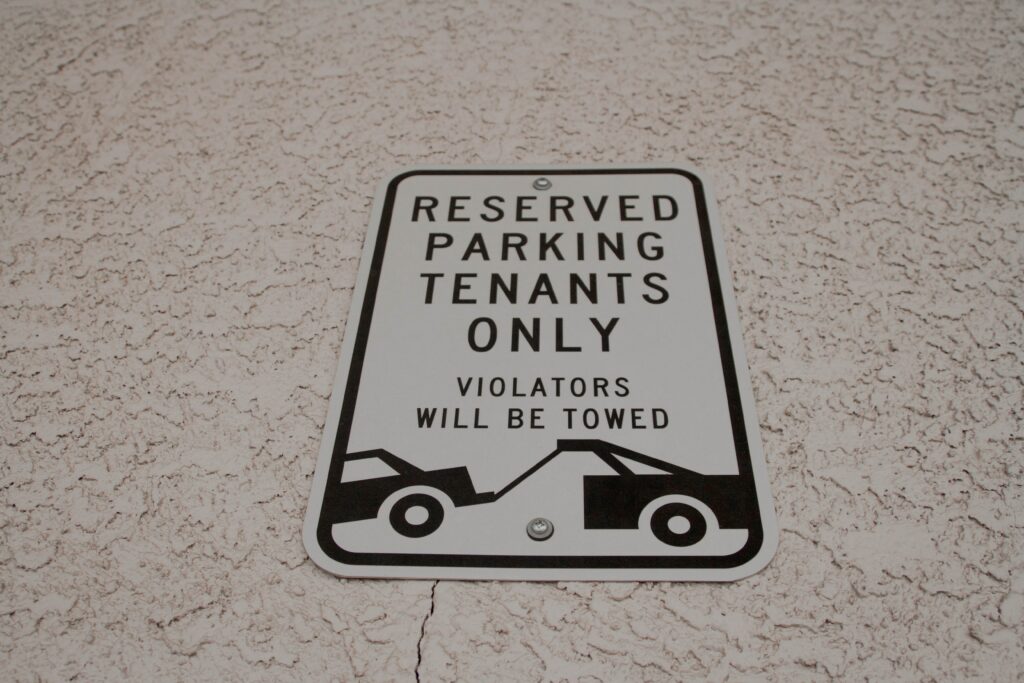
Workshop, brochure, or different type of materials that might be used in other cases will summarise notes and critical assessment of the applied tools, legal advice and information useful for tenants will be collected during the whole process. (January – June 2022)
Experiences and skills that help to reach the stated goals:
The members of the re-set team have experience with: a) organising and cooperation with tenants at the smaller scale (the case of Ferona – conflict between the local dwellers and developer over the construction project); b) working with mass media, propagation (based on activists experience); c) organising direct actions, protests, petitions campaigns, community events. Willingness to self-educate on the basis of experience from abroad and of the local groups with whom there are established relationships.

Risks
Covid situation: During the project, the team will take into consideration the actual epidemiological situation and government regulations. If needed, they will use masks, gloves, sanitisers and will stress safety of organisers and the people involved. Internet tools such as Facebook groups, zoom meetings will be applied according to the circumstances. They will put more attention to contact-collecting, especially phone numbers. On the other hand, the Covid situation could potentially make the community organising easier in a sense of urgency of some issues (e.g. price of rent in the context of a job loss). There is also a bigger willingness of some landlords to make concessions. Re-set also will involve information from the international webinar on organising in the time of Covid with Jane MacAlevey which the team members are quite into. Also, there are already some brochures about tenant organising in Covid times which can be used.
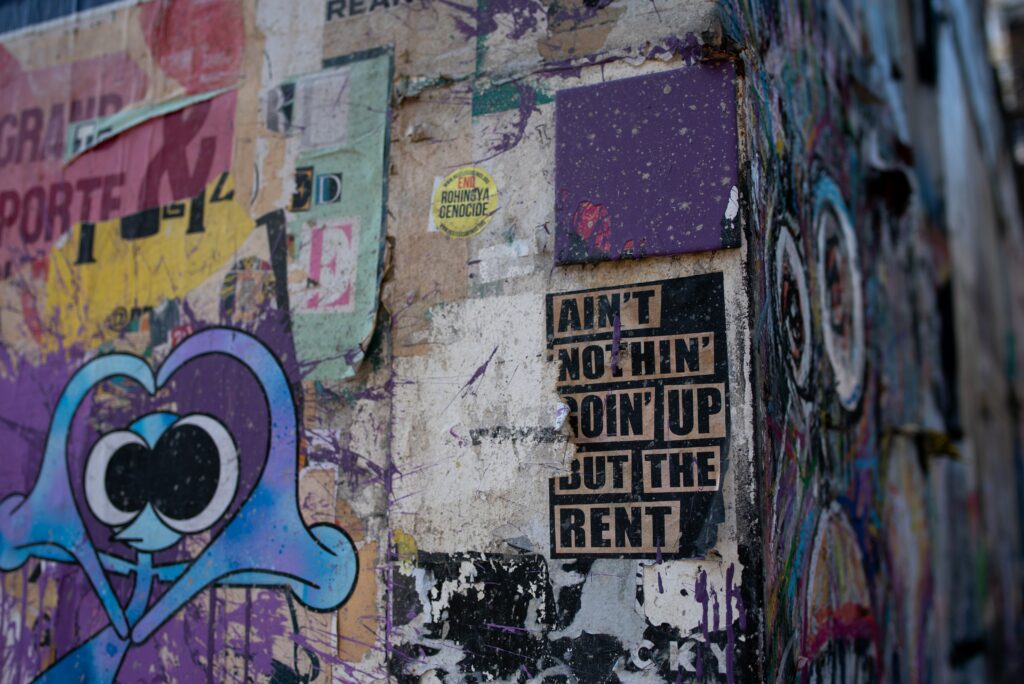
Landlord’s backlash: The team must be honest with the tenants about the potential risks of the landlord being aggressive. It is important to inform about the possible risks and make sure that the tenants know about possible reactions of the company. Re-set will be prepared to support the tenants through their lawyers when necessary.
Passivity of tenants: While passivity and fear of a landlord is an obstacle in the course of all projects of this type, there is a chance that it will be so strong that the project in its present form will turn non-executable. The team hopes and will do their best for this not to happen. The common goals are well considered, however they will have to reassess them into more moderate ones during the project, if needed. In this case they might investigate the practices of the landlord and seek the possible solutions beyond organising (e.g. individual legal help); or think of ways to help other individual tenants in Prague with their issues (requiring the contacts from the activists networks); organise community actions (e.g. art, culture) in the settlement in order to develop the sense of community that could be beneficial for organising when an appropriate moment comes.
